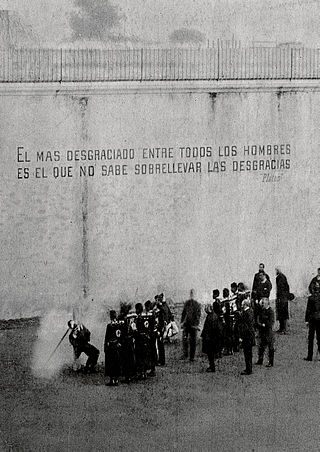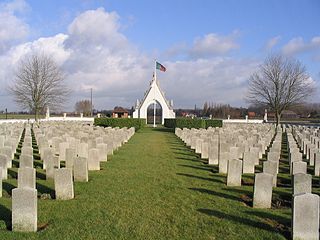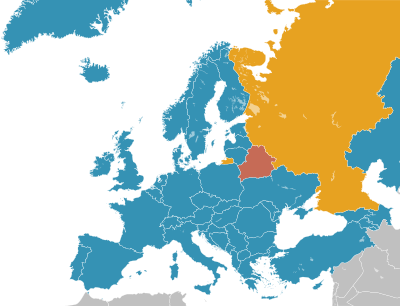Capital punishment, also known as the death penalty and formerly called judicial homicide, is the state-sanctioned practice of killing a person as a punishment for a crime, usually following an authorised, rule-governed process to conclude that the person is responsible for violating norms that warrant said punishment. The sentence ordering that an offender be punished in such a manner is known as a death sentence, and the act of carrying out the sentence is known as an execution. A prisoner who has been sentenced to death and awaits execution is condemned and is commonly referred to as being "on death row". Etymologically, the term capital refers to execution by beheading, but executions are carried out by many methods, including hanging, shooting, lethal injection, stoning, electrocution, and gassing.

Capital punishment, also called the death penalty, is the state-sanctioned killing of a person as a punishment for a crime. It has historically been used in almost every part of the world. By the 2010s, many countries had either abolished or discontinued the practice. In 2022, the five countries with the highest number of people executed were, in descending order: China, Iran, Saudi Arabia, Egypt, and the United States of America.

Capital punishment is a legal penalty in Belarus. At least one execution was carried out in the country in 2022.

Capital punishment has been completely abolished in all European countries except for Belarus and Russia, the latter of which has a moratorium and has not conducted an execution since September 1996. The complete ban on capital punishment is enshrined in both the Charter of Fundamental Rights of the European Union (EU) and two widely adopted protocols of the European Convention on Human Rights of the Council of Europe, and is thus considered a central value. Of all modern European countries, San Marino, Portugal, and the Netherlands were the first to abolish capital punishment, whereas only Belarus still practises capital punishment in some form or another. In 2012, Latvia became the last EU member state to abolish capital punishment in wartime.
Capital punishment for murder was abolished in Malta in 1971. It continued to be part of the country's military code until it was fully abolished on 21 March 2000. Malta is a signatory of the Second Optional Protocol to the International Covenant on Civil and Political Rights that commits it to abolition of the death penalty within its borders. Malta has also ratified protocol 13 to the European Convention on Human Rights, that bans the death penalty in all circumstances.
Capital punishment is forbidden in Switzerland by article 10, paragraph 1 of the Swiss Federal Constitution. Capital punishment was abolished from federal criminal law in 1942, but remained available in military criminal law until 1992. The last actual executions in Switzerland took place during World War II.
Capital punishment is a legal penalty in Pakistan. Although there have been numerous amendments to the Constitution, there is yet to be a provision prohibiting the death penalty as a punitive remedy.

The use of capital punishment in Italy has been banned since 1889, with the exception of the period 1926–1947, encompassing the rule of Fascism in Italy and the early restoration of democracy. Before the unification of Italy in 1860, capital punishment was performed in almost all pre-unitarian states, except for Tuscany, where, starting from 1786, it was repeatedly abolished and reintroduced. It is currently prohibited by the Constitution of the Italian Republic with no more exceptions even in times of war.

Capital punishment in Armenia was a method of punishment that was implemented within Armenia's Criminal Code and Constitution until its eventual relinquishment in the 2003 modifications made to the Constitution. Capital punishment's origin in Armenia is unknown, yet it remained present in the Armenia Criminal Code of 1961, which was enforced and applied until 1999. Capital punishment was incorporated in Armenian legislation and effectuated for capital crimes, which were crimes that were classified to be punishable by death, this included: treason, espionage, first-degree murder, acts of terrorism and grave military crimes.
Capital punishment in Georgia was completely abolished on 1 May 2000 when Protocol 6 to the ECHR was signed. Later Georgia also adopted the Second Optional Protocol to the ICCPR. Capital punishment was replaced with life imprisonment.

Capital punishment in Romania was abolished in 1990, and has been prohibited by the Constitution of Romania since 1991.
Capital punishment is no longer applied in San Marino: the last execution was carried out in 1468 or in 1667, by hanging.

Capital punishment in Nepal has been abolished.
Capital punishment in Peru was last used in 1979. In the same year, the death penalty was abolished for ordinary crimes. Peru is one of seven countries that has abolished capital punishment for "ordinary crimes only." Peru voted in favor of the United Nations moratorium on the death penalty in 2007, 2008, 2010, 2012, 2014, 2016, 2018, and 2020. Peru is not a member state to the Second Optional Protocol to the International Covenant on Civil and Political Rights.

Capital punishment in Uruguay was abolished from the legal system in 1907 by Law N° 3238, passed during the government of president Claudio Williman, and later removed from the constitutional system in 1918. It had been established by Uruguayan Constitution of 1830.

João Augusto Ferreira de Almeida was a soldier in the Portuguese Expeditionary Corps of the First World War. After six months of combat, he was convicted of desertion by a court martial and executed by firing squad.
Capital punishment is a legal penalty in Burkina Faso. It has been abolished for all offenses except war crimes, making the country "Abolitionist for Ordinary Crimes," along with Brazil, Chile, El Salvador, Guatemala, Israel, and Peru. Before the partial abolition of capital punishment in 2018, capital punishment had been abolished de facto. Its last execution was performed in 1989.
Capital punishment is abolished in Argentina. Argentina abolished capital punishment for ordinary crimes in 1984 and abolished it for all crimes in 2008, supported by the president at the time, Cristina Fernández de Kirchner. Argentina voted in favor of the United Nations moratorium on the death penalty eight times, in 2007, 2008, 2010, 2012, 2014, 2016, 2018, and 2020. Argentina signed the Second Optional Protocol to the International Covenant on Civil and Political Rights on 20 Dec 2006 and ratified it on 2 Sep 2008.
Capital punishment is only a legal penalty in Ghana for high treason. Ghana last executed a criminal in 1993. It is considered "Abolitionist in Practice." Capital punishment was a mandatory sentence for certain ordinary criminal offenses until 2023.






